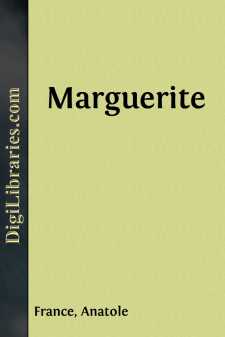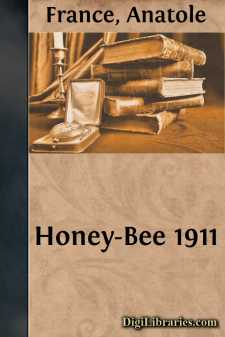Categories
- Antiques & Collectibles 13
- Architecture 36
- Art 48
- Bibles 22
- Biography & Autobiography 813
- Body, Mind & Spirit 142
- Business & Economics 28
- Children's Books 17
- Children's Fiction 14
- Computers 4
- Cooking 94
- Crafts & Hobbies 4
- Drama 346
- Education 46
- Family & Relationships 57
- Fiction 11829
- Games 19
- Gardening 17
- Health & Fitness 34
- History 1377
- House & Home 1
- Humor 147
- Juvenile Fiction 1873
- Juvenile Nonfiction 202
- Language Arts & Disciplines 88
- Law 16
- Literary Collections 686
- Literary Criticism 179
- Mathematics 13
- Medical 41
- Music 40
- Nature 179
- Non-Classifiable 1768
- Performing Arts 7
- Periodicals 1453
- Philosophy 64
- Photography 2
- Poetry 896
- Political Science 203
- Psychology 42
- Reference 154
- Religion 513
- Science 126
- Self-Help 84
- Social Science 81
- Sports & Recreation 34
- Study Aids 3
- Technology & Engineering 59
- Transportation 23
- Travel 463
- True Crime 29
The Gods are Athirst
by: Anatole France
Categories:
Description:
Excerpt
variste Gamelin, painter, pupil of David, member of the Section du Pont-Neuf, formerly Section Henri IV, had betaken himself at an early hour in the morning to the old church of the Barnabites, which for three years, since 21st May 1790, had served as meeting-place for the General Assembly of the Section. The church stood in a narrow, gloomy square, not far from the gates of the Palais de Justice. On the façade, which consisted of two of the Classical orders superimposed and was decorated with inverted brackets and flaming urns, blackened by the weather and disfigured by the hand of man, the religious emblems had been battered to pieces, while above the doorway had been inscribed in black letters the Republican catchword of "Liberty, Equality, Fraternity or Death." Évariste Gamelin made his way into the nave; the same vaults which had heard the surpliced clerks of the Congregation of St. Paul sing the divine offices, now looked down on red-capped patriots assembled to elect the Municipal magistrates and deliberate on the affairs of the Section. The Saints had been dragged from their niches and replaced by the busts of Brutus, Jean-Jacques and Le Peltier. The altar had been stripped bare and was surmounted by the Table of the Rights of Man.
It was here in the nave that twice a week, from five in the evening to eleven, were held the public assemblies. The pulpit, decorated with the colours of the Nation, served as tribune for the speakers who harangued the meeting. Opposite, on the Epistle side, rose a platform of rough planks, for the accommodation of the women and children, who attended these gatherings in considerable numbers.
On this particular morning, facing a desk planted underneath the pulpit, sat in red cap and carmagnole complete the joiner from the Place Thionville, the citoyen Dupont senior, one of the twelve forming the Committee of Surveillance. On the desk stood a bottle and glasses, an ink-horn, and a folio containing the text of the petition urging the Convention to expel from its bosom the twenty-two members deemed unworthy.
Évariste Gamelin took the pen and signed.
"I was sure," said the carpenter and magistrate, "I was sure you would come and give in your name, citoyen Gamelin. You are the real thing. But the Section is lukewarm; it is lacking in virtue. I have proposed to the Committee of Surveillance to deliver no certificate of citizenship to any one who has failed to sign the petition."
"I am ready to sign with my blood," said Gamelin, "for the proscription of these federalists, these traitors. They have desired the death of Marat: let them perish."
"What ruins us," replied Dupont senior, "is indifferentism. In a Section which contains nine hundred citizens with the right to vote there are not fifty attend the assembly. Yesterday we were eight and twenty."
"Well then," said Gamelin, "citizens must be obliged to come under penalty of a fine."
"Oh, ho!" exclaimed the joiner frowning, "but if they all came, the patriots would be in a minority.... Citoyen Gamelin, will you drink a glass of wine to the health of all good sansculottes?..."
On the wall of the church, on the Gospel side, could be read the words, accompanied by a black hand, the forefinger pointing to the passage leading to the cloisters: "Comité civil, Comité de surveillance, Comité de bienfaisance." A few yards further on, you came to the door of the erstwhile sacristy, over which was inscribed: Comité militaire.
Gamelin pushed this door open and found the Secretary of the Committee within; he was writing at a large table loaded with books, papers, steel ingots, cartridges and samples of saltpetre-bearing soils.
"Greeting, citoyen Trubert. How are you?"
"I?... I am perfectly well."
The Secretary of the Military Committee, Fortuné Trubert, invariably made this same reply to all who troubled about his health, less by way of informing them of his welfare than to cut short any discussion on the subject. At twenty-eight, he had a parched skin, thin hair, hectic cheeks and bent shoulders. He was an optician on the Quai des Orfèvres, and owned a very old house which he had given up in '91 to a superannuated clerk in order to devote his energies to the discharge of his municipal duties. His mother, a charming woman, whose memory a few old men of the neighbourhood still cherished fondly, had died at twenty; she had left him her fine eyes, full of gentleness and passion, her pallor and timidity....












